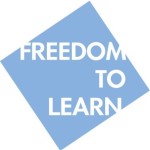Monday, January 8th 2018, 10am – 5pm (followed by drinks reception and book launch)
School of Geography and the Environment, University of Oxford
Keynote speakers:
Michael Donnelly (University of Bristol): ‘Spatial imaginaries’ and the transition to university: an intersectional analysis of class, ethnicity and place
Kirsty Finn (Lancaster University): Choreographies of belonging: Reimagining ‘local’ students’ everyday (im)mobiities in Higher Education
Call for papers
This one-day event, hosted by the School of Geography and Environment, University of Oxford, offers an opportunity for researchers to consider the much-neglected materialities of educational processes (both historical and contemporary) and how those materialities might intersect with an understanding of educational mobilities, space and place. Examples of ‘materialities’ affecting education might include: infrastructure and modes of transportation, architecture and urban design, furniture, books and stationery, forests and outdoor spaces, and various ‘props’ associated with learning. They may also include the ‘stuff’ of credentialisation (exam scripts, certificates, marketing materials and banners). Our definition of materialities is, of course, not limited to these examples. Alongside this focus on the material is a concomitant interest in mobilities and place; how education is constituted in and through mobilities (from the smallest to the most extensive) and is also embedded in various places. Again, we welcome papers that think through mobilities and place/space in an expansive way.
We welcome both theoretical and more empirically-focused papers, and abstract submissions from ECRs as well as from more established scholars. We encourage participation from those working in sociology, education and geography as well as in cognate disciplines.
Please send abstracts of 200 words to Johanna (johanna.waters@ouce.ox.ac.uk) by Monday 6th November. The event is free to attend, although places are limited on a first come, first served basis. Please email Johanna (johanna.waters@ouce.ox.ac.uk) or Rachel (r.brooks@surrey.ac.uk) to register.
Convenors: Johanna Waters (University of Oxford) & Rachel Brooks (University of Surrey); Sponsored by the Transformations: Economy, Society and Place research cluster (SoGE)

 Call for Papers: Symposium on ‘Constructing the higher education student: understanding spatial variations’, Royal Geographical Society-Institute of British Geographers Annual Conference, 29th August-1st September 2017
Call for Papers: Symposium on ‘Constructing the higher education student: understanding spatial variations’, Royal Geographical Society-Institute of British Geographers Annual Conference, 29th August-1st September 2017


 July will focus on the question of what ‘education for the future’ should look like.
July will focus on the question of what ‘education for the future’ should look like. issue of FORUM Journal invites written contributions which explore the idea of a socially just education system focusing on how such a system might address inequalities in society. The issue will explore alternative and innovative examples and ideas from schools and universities across a range of countries (including Denmark and the USA) and consider whether these alternatives may illuminate approaches to reducing social and educational inequality.
issue of FORUM Journal invites written contributions which explore the idea of a socially just education system focusing on how such a system might address inequalities in society. The issue will explore alternative and innovative examples and ideas from schools and universities across a range of countries (including Denmark and the USA) and consider whether these alternatives may illuminate approaches to reducing social and educational inequality.